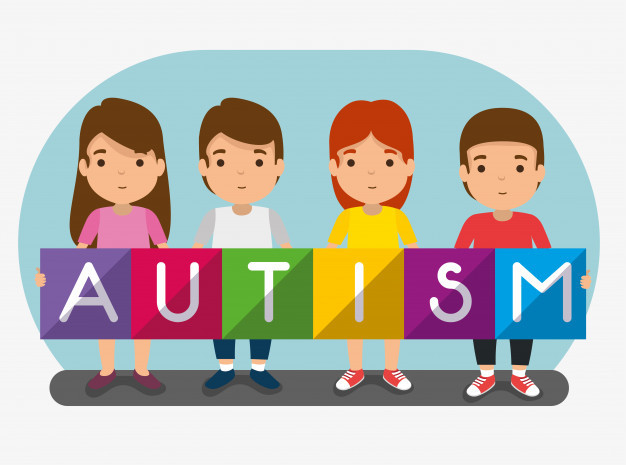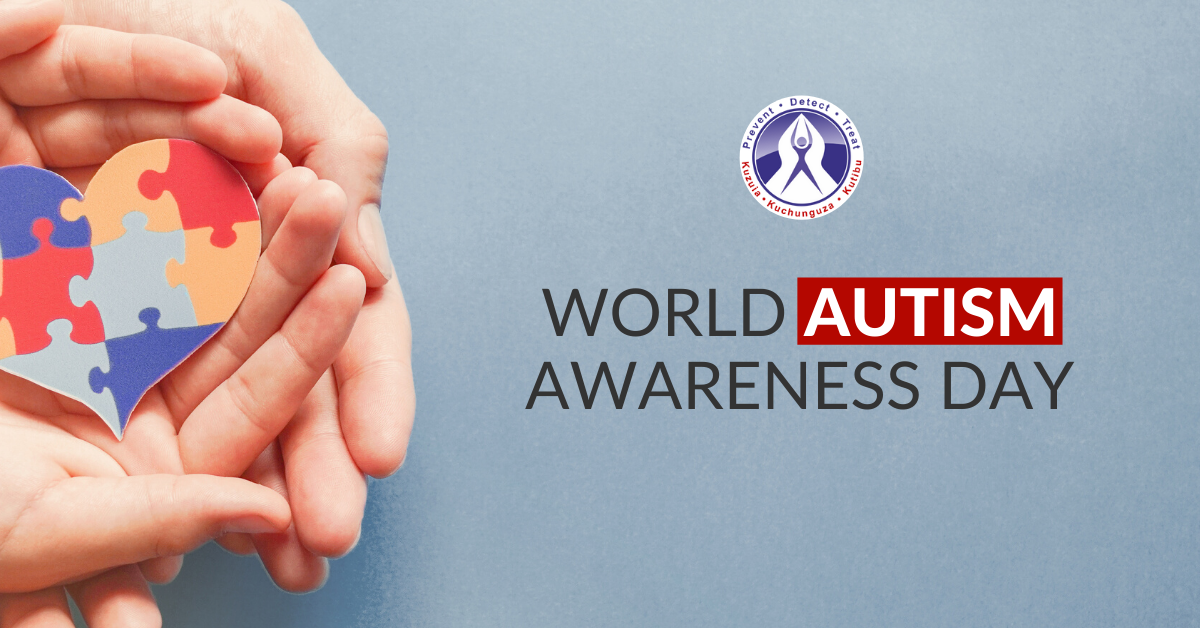World Autism Awareness Day 2021: What is Autism? Symptoms and Treatments
1,007 viewsWorld Autism Awareness Day 2021 will be observed on April 2 to raise awareness and promote kindness for people with autism. This year, the world will observe the thirteenth world autism awareness day. To show their love and solidarity for autistic people, the citizens of all the countries organize various online and offline events to talk about autism. As a gesture of kindness, many iconic buildings across the world are decorated with blue, yellow, red, and purple lights. This puzzling pattern is a sign of appreciation and celebration of the uniqueness and complexities of the autism spectrum.
The best way to celebrate this day is to understand autism so you can help people more. Let us dig into what is autism and how does it look like.
World Autism Awareness Day 2021: Understanding Autism

Autism, more specifically Autism Spectrum Disorder, is a neurological condition that affects the way a person behaves and socializes with others around them. It may cause problems in communication and social interaction in general. There is a wide range of different behavioral patterns in people with autism. That is why the word “spectrum” has been included in the name of the disorder.
So in simple words, a person with autism may:
- have difficulty understanding how others feel or think
- communicate and interact with others differently than most people
- take more time than others to understand information or instructions
- do or say the same things repeatedly
Autism symptoms and signs

Autism develops in early childhood. In most cases, children with autism show signs within the first year. However, in other cases, autistic children seem to behave normally during the first year and begin showing signs between 18 and 24 months of age.
Signs of autism during communication and interaction
- Lack of facial expressions and eye contact
- Do not respond to their names
- Do not hear when someone is talking to them
- Get uncomfortable when someone cuddles or hugs them
- Prefer to play alone
- Have difficulty speaking clearly, or may not speak full sentences at all
- Speak in an abnormal, robot-like tone
- Don’t talk to anyone unless they need something
- Find it hard to understand simple instructions or directions
- Don’t express feelings and can’t perceive how others feel
- Act aggressive, passive or disruptive in a social event
- Cannot interpret non-verbal cues
Common behavioral signs of Autism
- Feeling overwhelmed with loud noises or bright lights
- Getting uncomfortable in unfamiliar settings or social events
- Repetitive movements like flapping hands or rocking the body
- Headbanging or doing other things that can cause self-harm
- Developing rigid routines and rituals
- Becoming upset or angry with even the slightest changes in routine
- Abnormal body language, like walking on toes or clumsiness in movements
- Watching objects or doing activities with unusually high intensity
- Feeling overwhelmed with bright lights or loud noises
- Having specific food preferences and strict aversion to foods with a certain texture
In some cases, the severeness of symptoms reduces as children with autism grow older. They are able to engage with others and have less frequent disturbances in their behavior. However, some children with autism spectrum disorder may have more severe symptoms and problems in social interaction as they mature.
How is Autism diagnosed?

For children, the diagnosis of autism usually takes two steps.
Developmental screening
Development screenings should be a part of a child’s regular health check-ups. Thus, doctors recommend that every parent takes their child for a developmental screening at the ages of 9 months, 18 months, and 24 or 30 months. During a developmental screening, the doctor monitors how a child is catching up with basic skills like language, learning, speaking, movements, and behavior.
However, developmental screening cannot be considered a diagnosis. If a child shows signs of delayed development during a screening, the doctor will recommend a combination of other tests used for diagnosing autism.
Tests for diagnosing autism
If the doctor suspects a child may have autism spectrum disorder, they may recommend some or all of the following tests:
- Activities for monitoring behavioral patterns
- Occupational therapy screening
- Developmental questionnaires for autism
- Visual and audio tests to confirm that the child doesn’t have speech or hearing impairment
These tests are carried out by a team of specialists including occupational therapists, child psychologists, speech and language pathologists, etc.
Treatment for autism

Unfortunately, there is no cure for autism spectrum disorder. However, early intervention can soothe the symptoms of autism and help a child lead a better life. Since every child has their own behavioral patterns, only your child’s doctor can recommend the best course of treatment. Some of the most common therapies used in alleviating autism are:
Behavioral therapy: During these therapy sessions, the doctor helps a child adopt safe and desirable behavioral patterns through various activities.
Occupational therapy: Through this, a child can learn the basic skills that they need to lead a fairly independent life.
Floortime: It’s play-based therapy when a child with autism is joined by their parents to spend some floortime playing and engaging with each other. Floortime helps a child in learning to bond and form relationships.
Pivotal response treatment: This therapy is carried out to enhance an autistic child’s ability to positively respond to motivation.
In some cases, the doctor may also prescribe medications to help an autistic child deal with other conditions like epilepsy, depression, seizures or disturbed sleep.
World Autism Awareness Day 2021: Important things to learn and share
This World Autism Awareness Day in 2021, take a pledge to raise awareness about autism spectrum disorder and help people be more sensitive to autistic children.
Remember that autism is not an illness. Autism just means that a person’s brain works differently than most people in this world. There are no specific causes of autism, autistic people are born with it. However, with proper treatment, most people go on to live a full life by managing the symptoms of autism. Share this blog with others and spread love and support for people with autism.


